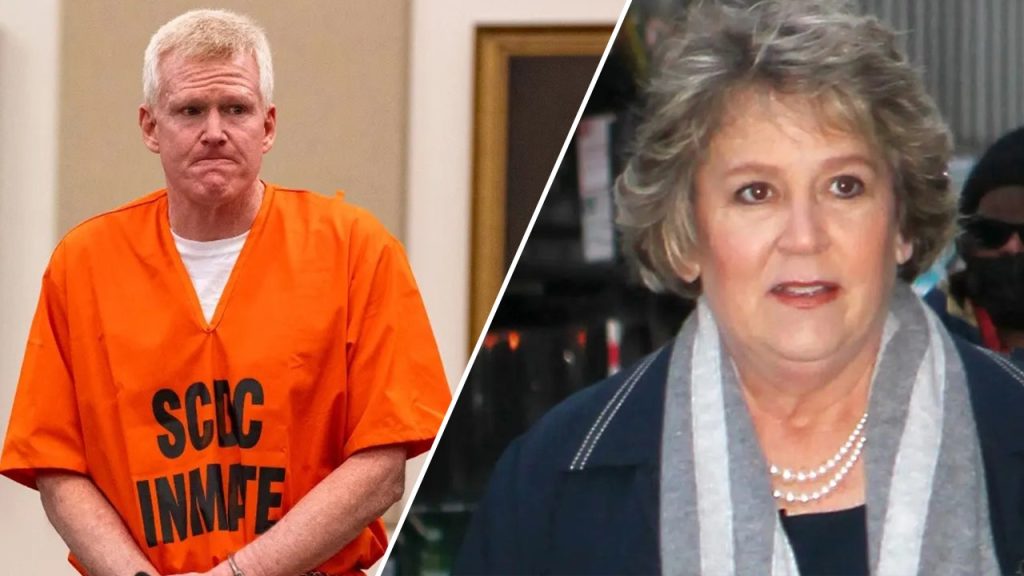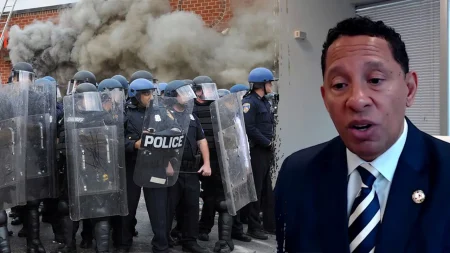Paragraph 1: The Genesis of the Appeal
Alex Murdaugh, the once-prominent South Carolina lawyer, now finds himself at the center of a high-stakes legal battle as his attorneys launched an appeal against his life sentence for the murders of his wife, Maggie, and son, Paul. The appeal, a voluminous 132-page document, serves as a comprehensive challenge to the proceedings and verdict of the trial that captivated the nation. Murdaugh’s legal team contends that the trial was irrevocably tainted by a confluence of factors, including the improper admission of evidence related to his financial misdeeds and allegations of jury tampering by the court clerk, Becky Hill. These issues, they argue, created an environment of unfairness that prejudiced the jury against Murdaugh and ultimately led to his conviction.
Paragraph 2: The Financial Crimes Controversy
A central pillar of Murdaugh’s appeal rests on the argument that the introduction of evidence concerning his financial crimes during the murder trial was unduly prejudicial. The prosecution’s narrative posited that Murdaugh committed the murders to divert attention from his escalating financial troubles, which were on the verge of being exposed. Murdaugh’s attorneys vehemently disagree with this line of reasoning, asserting that the financial crimes were irrelevant to the murder charges and served only to paint their client in a negative light, thereby predisposing the jury to convict him. They maintain that the inclusion of this evidence violated Murdaugh’s right to a fair trial, where the focus should have been solely on the murder charges.
Paragraph 3: The Shadow of Jury Tampering
Further compounding the alleged unfairness of the trial are the allegations of jury tampering against former Colleton County Clerk Becky Hill. The appeal points to Hill’s alleged influence on the jury as a significant factor that undermined the integrity of the proceedings. While the majority of jurors denied being swayed by Hill’s alleged comments, the appeal emphasizes the potential for even subtle influences to affect jury deliberations. The defense team argues that the mere presence of such allegations casts a pall over the trial and raises serious concerns about the impartiality of the jury. The fact that Hill faces numerous ethics violations related to her conduct during the trial lends credence to these concerns, according to the appeal.
Paragraph 4: Judge Toal’s Ruling and its Implications for the Appeal
The defense’s efforts to secure a new trial based on the allegations against Hill were initially rebuffed by Judge Jean Toal, who ruled that the allegations were insufficient to warrant a retrial. However, Murdaugh’s appeal directly challenges this ruling, arguing that the judge erred in her assessment of the potential impact of Hill’s actions. The appeal contends that Judge Toal’s decision failed to adequately consider the gravity of the jury tampering allegations and their potential to prejudice the outcome of the trial. This disagreement over the significance of the alleged jury tampering forms a key battleground in the appeal process.
Paragraph 5: Contested Evidence and the Search for a Fair Trial
Beyond the financial crimes and jury tampering allegations, the appeal also takes aim at the prosecution’s introduction of certain pieces of evidence, arguing that their inclusion was both irrelevant and prejudicial. Specifically, the appeal challenges the presentation of multiple firearms that lacked any demonstrable link to the murders, asserting that their presence served only to confuse the jury and create an atmosphere of suspicion around Murdaugh. Similarly, the appeal contests the significance of gunshot residue found on a raincoat, arguing that the prosecution failed to establish any conclusive connection between the residue and Murdaugh. These evidentiary challenges underscore the defense’s broader argument that the prosecution’s case relied on innuendo and speculation rather than concrete evidence, thus depriving Murdaugh of a fair trial.
Paragraph 6: The Path Ahead and the Stakes of the Appeal
With the appeal now filed, the legal battle surrounding Alex Murdaugh enters a new phase. The appellate court will meticulously review the arguments presented by both sides, weighing the evidence and legal precedents to determine whether Murdaugh received a fair trial. The stakes are undeniably high. For Murdaugh, the appeal represents a last-ditch effort to overturn his conviction and avoid spending the rest of his life behind bars. For the prosecution, the appeal presents a challenge to uphold the verdict and ensure that justice is served in this complex and emotionally charged case. The outcome of the appeal will have far-reaching implications, not only for Murdaugh himself but also for the public’s perception of the legal system and its ability to deliver fair and impartial justice. The appeal’s focus on jury tampering, the admissibility of potentially prejudicial evidence and the overall fairness of the trial will be closely scrutinized in the months to come, as the legal system grapples with the complexities and controversies of this high-profile case.











